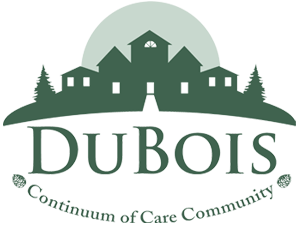Independent Living Communities
Providing security with no home maintenance
Independent living communities are residential communities for active older adults who want an enjoyable lifestyle free of the worries of home maintenance. They are similar to any apartment, condominium or single-family development, except that they provide special services, including security. Some independent living communities are fully secured with staff members greeting and screening all visitors around the clock.
As many individuals at this stage in their lives are looking to pursue new hobbies and interests, the activities and amenities available at a community are a major factor for potential residents. Most independent living communities provide a full range of activities such as shopping trips, outings to cultural events, organized gatherings and an array of clubs. Some communities also have tennis courts, swimming pools and other amenities.
Independent living communities typically offer a variety of meal plans. Residents also have the option of preparing their own meals.
Most independent living communities do not offer health care services. However, some communities are affiliated with health care facilities that can provide such care when it is needed.
Residents also have the option of purchasing home health care services or home care services from outside providers. Most independent living communities are rental communities, but some are condominiums or single-family communities in which residents purchase their units or homes. Costs and services vary widely. In some communities a monthly fee covers many services, while in others a fee-for-service system is used. A few communities offer subsidies based on strictly defined needs. To learn more, contact your local Area Agency on Aging.
Consumers should carefully research the independent living community options in their target areas or neighborhoods. After requesting and reviewing information from communities, prospective residents should plan on-site visits to each community they are considering.
Affordable Independent Living
The U.S. Department of Housing and Urban Development {HUD) funds several rental assistance programs for seniors who qualify. These programs include public housing or low-income housing that is owned and operated by a local housing authority. To apply for public housing or Section 8 certificates or vouchers, you must go to your housing authority. Each housing authority has a system for accepting applications. Their representatives can explain their system and how to find an available apartment.
HUD's Section 202 program includes apartments where the government provides subsidies directly to owners of qualified properties developed with loans or grants from the federal government. The owners pass along the federal rental assistance subsidy to qualified residents to cover the gap between the resident payment, generally 30 percent of adjusted income, and rent costs.
Source: www.aahsa.org/artic/e.aspx?id=3780 This article is a compilation of articles edited by Darla Kahle, DCCCI Article portions compiled and with permission from Retirement Living Sourcebook Summer/Fall 2020
When you subscribe to the blog, we will send you an e-mail when there are new updates on the site so you wouldn't miss them.

